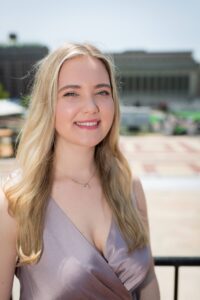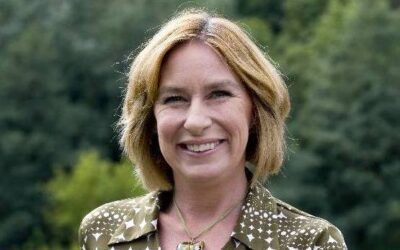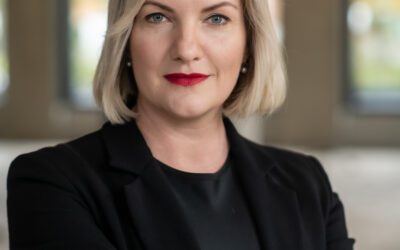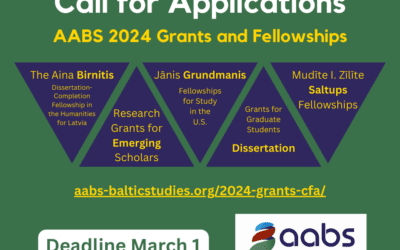AABS is pleased to recognize Alise Pundure for her completion of the Jānis Grundmanis Graduate and Postgraduate Fellowship for Study in the U.S., which she received in 2022.

©Alise Pundure, 2023
Alise Katrīna Pundure holds a Master of Arts in Arts Administration from Columbia University. She previously graduated Summa Cum Laude, Honors with Distinction from Drexel University with a B.S. in Entertainment and Arts Management. Pundure is passionate about technology in museums and digital communications in the arts and non-profit organizations. Her master’s thesis focused on the challenges of implementing open access digitized collections and cloud technology in U.S. museums. Pundure has work experience in digital communications strategy in higher education and internship experience in museums in Philadelphia and Riga.
The Impact of an Award: Report from Alise Pundure
After the completion of her fellowship, Alise Pundure submitted a reflection to AABS.
We thank her for her permission to publish her thoughts, which have been lightly edited.
Between September 2021 and May 2023, I completed the master’s program in Arts Administration at Teachers College, Columbia University. During the second year of my studies, I finished my master’s thesis “Challenges of Implementing Open Access and Cloud Technology in U.S. Museums” and completed nine courses, including Contemporary Issues in Arts Administration, Entrepreneurship in the Arts, and Law and the Arts. With support from my program, I also attended the Emerging Arts Leaders Symposium at American University in Washington D.C.
In my first semester of the second year of studies, I focused on completing my master’s thesis, for which I conducted research on the challenges of implementing open access digitized collections and cloud technology in U.S. museums. To collect my research data, I interviewed professionals from five U.S. museums, including the Yale Center for British Art, the Minneapolis Institute of Art, the Getty Museum, the Los Angeles County Museum of Art, and the Walters Art Museum. Speaking with professionals from these museums who work with digital collections was an invaluable experience, which allowed me to learn from the best in the field and build my professional network.
Throughout this semester, I completed coursework in Law and the Arts, Teaching in the Art Museum, Constructive Multicultural Organizational Development, and Diversity in the Arts. Law and the Arts was one of the most engaging courses this year, where I learned about copyright law, moral rights, trademarks and patents, rights of the subject, First Amendment, legal and ethical issues in arts nonprofits, and cultural heritage law. This class also included several guest speakers, who are experts in the field of art law, such as the General Counsel of the Metropolitan Museum of Art, Sujin Kim, cultural heritage lawyer Leila Amineddoleh, and lawyer Yael Weitz, who works on Nazi-looted art restitution cases.
The Teaching in the Art Museum course provided me with the foundations of teaching in museum galleries with many opportunities to practice and see examples of gallery teaching in the Metropolitan Museum of Art, the Brooklyn Museum, and the Schomburg Center for Research in Black Culture. This course was taught by an educator from the Brooklyn Museum, which gave students an invaluable insight into the world of museum education.
The Constructive Multicultural Development course was an elective I selected from the prestigious Morton Deutsch International Center for Cooperation and Conflict Resolution at Teachers College. This course was a one weekend intensive, where through the case study of the U.S. National Park Service, I learned about the Dynamical Systems Model for resolving multicultural conflict in organizations.
In the Diversity in the Arts course, I learned about the systems that hold inequality in the arts in place and the innovative ways in which it can be challenged. As my final project for this course, I developed a set of 10 questions for museums to evaluate their DEI efforts and become more equitable. This course also included several guest speakers, who spoke to the ways they are dismantling systemic inequality in the arts, such as through mutual aid efforts and alternatives to market-driven logics in the arts.
During the second semester, I completed coursework in Contemporary Issues in Arts Administration, Entrepreneurship in Arts Administration, The Museum Education Department: Function, Scope, Possibility, and Effective Mediation: Standard and Adaptive Practices. I also attended a conference for emerging arts administrators, the Emerging Arts Leaders Symposium at American University in Washington D.C.
The Contemporary Issues in Arts Administration course provided an overview of pressing current issues in the arts, which include labor movements and unionization, issues with arts funding, the impact of the COVID pandemic on the arts, and museum object repatriation. I also heard from guest speakers, such as Dr. Rachel Skaggs, who conducted research on how COVID-19 impacted the needed skills and resources of arts graduates. In the second half of the semester, each student gave a presentation on a current topic in arts administration, and I chose to present on the ethical and legal complexities of museum collection digitization and specifically the case of African artifacts in French museum collections and the Sarr-Savoy Report.
The Entrepreneurship in Arts Administration course provided an overview of the principles of arts entrepreneurship and was an opportunity to hear from professionals in the field who have started their own organizations. They included Jaime Hastings, Executive Director of Arthur Miller Foundation, Cathy Barbash, Founder of Barbash Arts Consulting, Nicole Becker, Executive Director of Every Voice Choirs, and Elizabeth Denny, the founder of Denny Gallery. In this class, I also had the opportunity to create a pitch presentation for a business idea in the arts and develop a project with fellow students that focused on developing a marketing plan for The Knights Orchestra.
The Museum Education Department course was taught by a long-time museum educator from the Solomon R. Guggenheim Museum, which was an invaluable experience. The course provided an overview of the different functions of museum education departments, including gallery teaching, creating accessible programming for people with disabilities, and collection interpretation.
The Effective Mediation course was another elective from the Morton Deutsch International Center for Cooperation and Conflict Resolution, which was an intensive course with hands-on activities, such as conflict role plays, which helped me develop skills in mediation and conflict resolution.
In March, I had the opportunity to attend a conference at American University in Washington D.C., The Emerging Arts Leaders Symposium, where I met other arts administration students from universities in the U.S. and Canada and heard from arts leaders in panel discussions on many topics, which included DEAI in the arts, community engagement, on-line strategies for in-person engagement in the arts, art therapy, and a keynote speech by Karen Ann Daniels, the Director of Programming and Artistic Director of Folger Theatre. This was a wonderful opportunity to learn from current arts leaders in various disciplines and build my professional network with other graduate students from my field.
The Grundmanis Fellowship allowed me to complete my final year of graduate studies, which was transformative and filled with incredible learning opportunities both from my courses and many speaker events offered by the program in Arts Administration as well as experiences outside of the university. I am very grateful for all the opportunities that came with studying at Teachers College, Columbia University and living in New York City, where I had a chance to explore and experience numerous cultural offerings from some of the best cultural organizations in the world. I have grown incredibly during these two years and hope that the knowledge and experience I gained will help me make a difference in the arts and cultural field in Latvia.
– Alise Pundure, 2023
Alise Pundure
What is the Grundmanis Fellowship?
The Jānis Grundmanis Graduate and Postgraduate Fellowship, established in the memory of Dr. Jānis Grundmanis, is an annual fellowship of $20,000 for graduate or postgraduate study in the United States.
Recipients of the fellowship must be citizens of the Republic of Latvia, speak Latvian, and have their permanent residence in Latvia. Preference will be given to applicants studying in the field of humanities or social sciences.
The application deadline for academic year 2023-2024 is February 1, 2023. Applications will be evaluated by the AABS 2023–2024 Grants Committee consisting of AABS VP for Professional Development Dr. Kaarel Piirimäe, AABS President Dr. Dovilė Budrytė, and AABS Director-at-Large Dr. Daunis Auers. Award notifications will be made in April 2023.
Other Grants and Fellowships News
Vanished Lands: Book Publication Subvention Report by Laima Vincė Sruoginis
The Association for the Advancement of Baltic Studies (AABS) is pleased to recognized the successful conclusion of a Book Publication Subvention Grant awarded to Peter Lang Publishers for publishing the book Vanished Lands: Memory and Postmemory in North American...
Elīna Vikmane Birnitis Fellowship Report on Advancing Cybermuseology
AABS is pleased to recognize Elīna Vikmane for the completion of her dissertation "Advancing Cybermuseology: Diffusion of digital innovation in Latvia’s museum sector," for which she received the 2022–2023 Aina Birnitis Dissertation-Completion Fellowship in the...
AABS 2024 Grant and Fellowship Applications Open
Call for Applications AABS 2024-2025 Grants and Fellowships Research Grants for Emerging Scholars The Aina Birnitis Dissertation-Completion Fellowship in the Humanities for Latvia Mudīte I. Zīlīte Saltups Fellowships Jānis Grundmanis Fellowships for...



